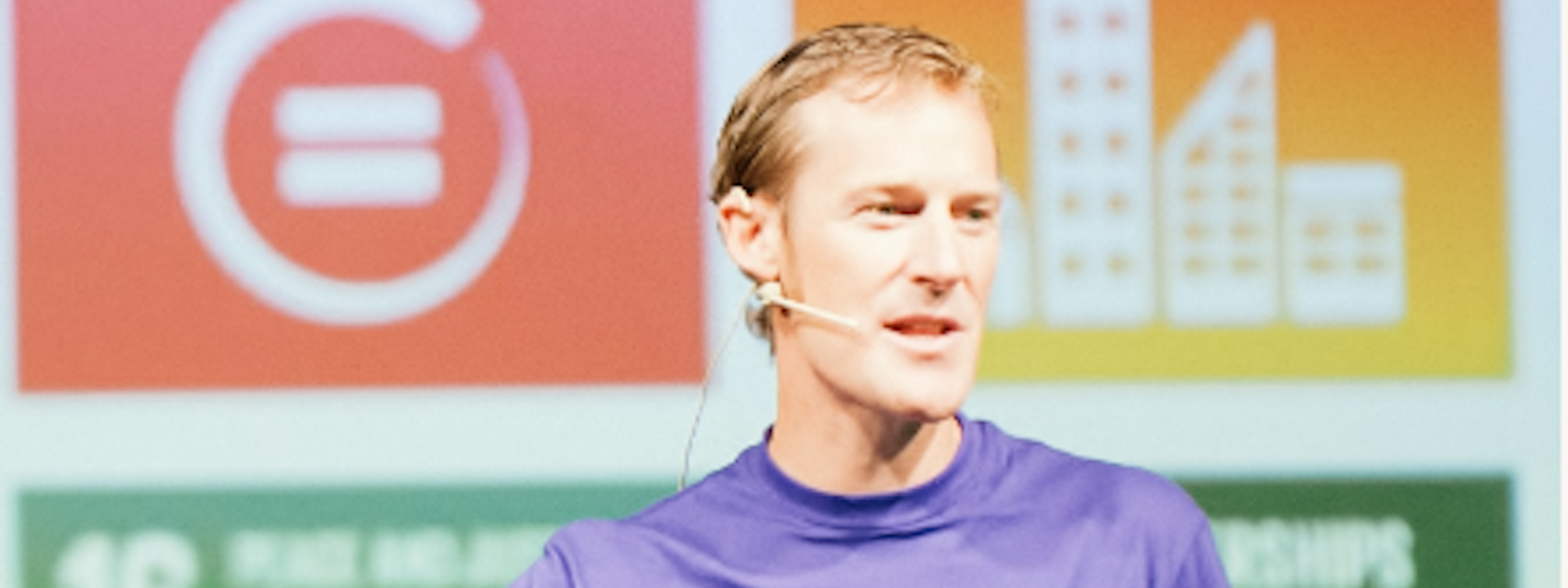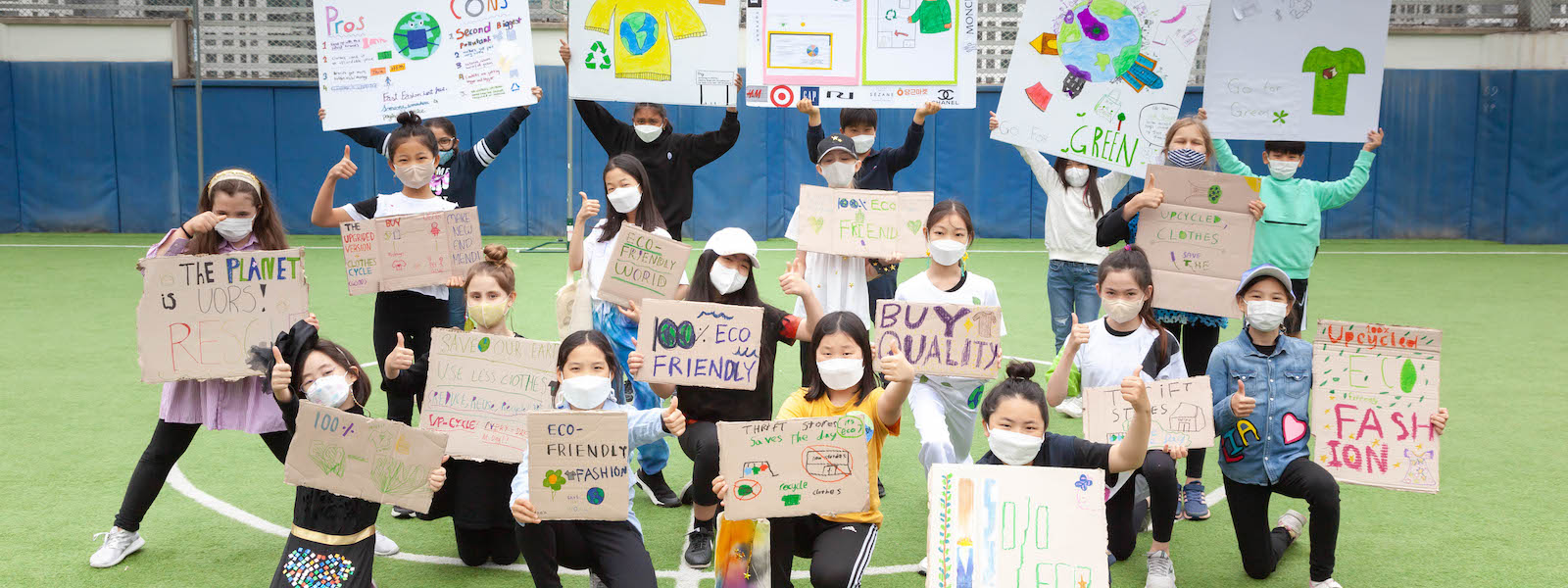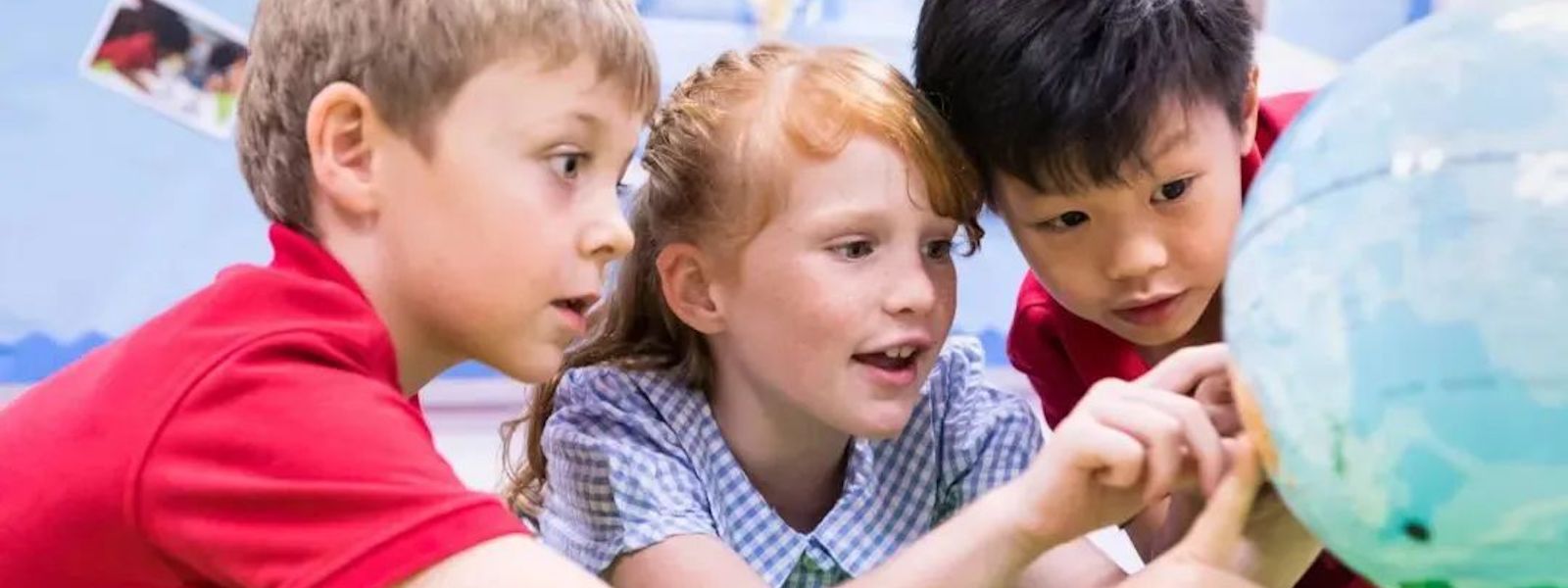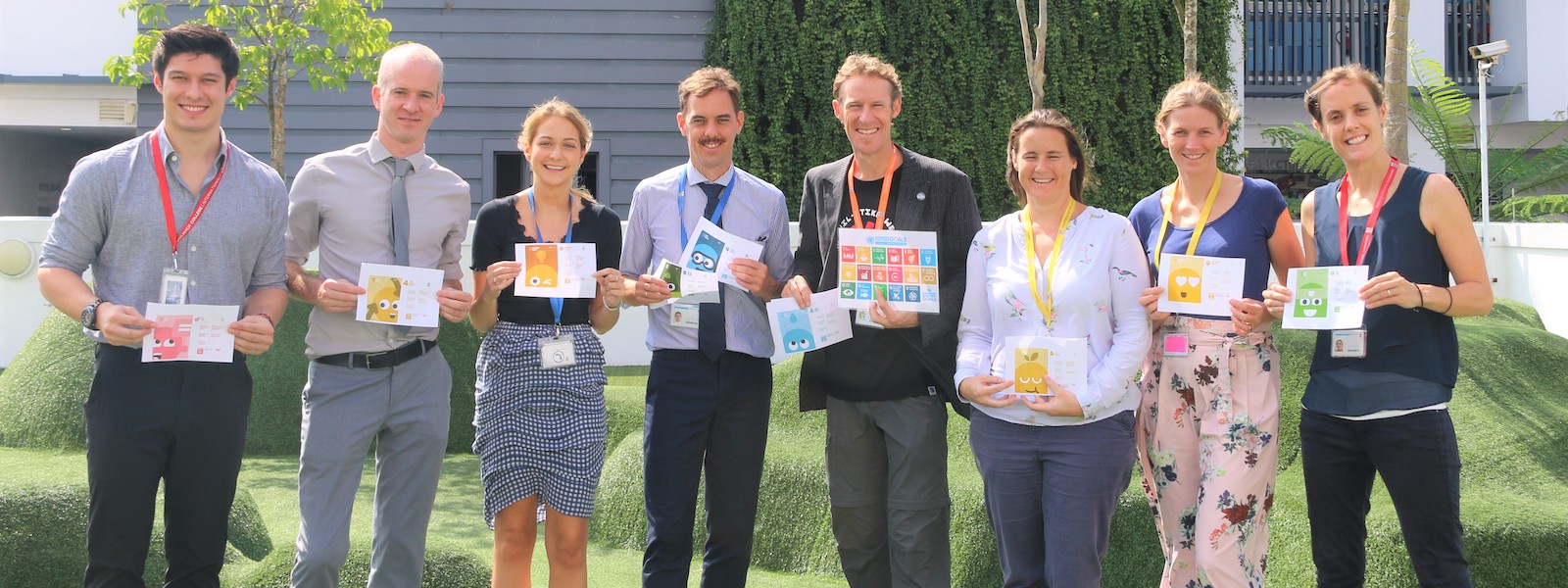
d’Arcy Lunn, EiM’s Group Head of Sustainability and Global Citizenship, speaks about the importance of being aware of sustainability, and how can everyone in our education community be involved in implementing sustainable actions on a daily basis.
As COP27 is wrapping up in Egypt, what does it mean to me as one individual in Shanghai and what can I do? Luckily being a part of EiM, the answer to that is, “Lots!” as there are many things currently happening around climate action!

Every year during COP, EiM runs No Carbon November where we put a spotlight on environmental sustainability in our schools and our organisation. This and last year, we didn’t run a big one-time event or make a token gesture such as having students plant trees they are unfamiliar with and unlikely to maintain. Instead we use November to remind ourselves of personal daily actions we can take and highlight many of the actions and approaches that occur everyday in our schools as a part of learning and living Worldwise.While planting trees often is well-intentioned, at our schools we are taking the approach that Sustainability and Global Citizenship are not just something we do every now and then, but a part of who we are.
We have organised ourselves so each school has their own set of global citizenship competencies. Environmental sustainability features in each of our schools’ competencies and reminds us to bring this perspective and lens into the everyday classroom.
- Other tools and features we use to keep climate action an everyday interaction and infused into our schools and group include:
- Carbon roadmaps measuring our Scope 1 and 2 emissions
- Our current No Carbon November campaign
- ESG reporting at an organisation level and establishing School Progress Indicators under our ESG pillars of Learning Planet People and Policy (we added Learning to ESG since we are an education organisation)
- Embedding the SDGs into the curriculum, units and lesson plans to add context and global literacy to the learning experience, and much more…
At the same time, we have embraced Teaspoons of Change – small but significant ideas, atittudes and actions that have a positive impact on the people and the planet. Though an individual cannot change our current climate situation on their own, what we do as individuals in our schools and as an organisation matters.
If we believe our actions matter, we can first make positive changes on a small scale – turning off the lights and refusing to use single-use plastics for example. However, the biggest impact of this is not in the coal not burnt or the plastic not used, it is in creating mindsets, attitudes, behaviours and approaches to life that manifest themselves when making other more significant choices now and in the future. This might be whether to buy a car, what university or course you might choose, what impact your future career might have on people and the planet and making choices aligned with the ethos of sustainability and Live Worldwise.

So while small individual actions may seem trivial, in reality they combine and contribute to the kind of world we want to see and the way we choose to live in it. This is a powerful thing to be doing in education as our students shape their values, identity, habits and behaviours. Just as importantly, this also has an effect on our staff and parents as our students keep us accountable and we learn from them doing their best to make good choices, decisions and actions.
So what does this mean in the context of COP27? COP27 demonstrates, on a global scale, how important changes in mindset are and how essential it is that we provide an education with a lens of sustainability so our youth have the skills and motivation not only to tackle climate change in the future, but also to hold our world leaders to account in enacting solutions today.
COP27 also demonstrates how climate action can only succeed if we are having local community conversations as well. We must find ways to make the invisible aspects of climate change visible. We must gather ways to mobilise commitment and create collective action. We must utilise tools, frameworks and collaborative approaches such as carbon roadmaps and ESG. At the same time, we must find a balance of optimism and realism to remain positive and practical in our approach to climate action.

Mitigating climate change is complex, daunting, slow and often goes against the flow of our mainstream ideas and ways of life but what we are doing in our schools and organisation is determining who we are and pioneering education for a sustainable future.
Whether it is ESG reporting, carbon mapping, No Carbon November or COP27 this is how we take action on climate change - as individuals, as a community and as a global village. We can make a difference and this is what it looks like!
Listen and learn from COP27, join in the No Carbon November activities and play a role in our communities of action and change! EiM will communicate, share, and learn with peers from around the world, promoting sustainable development and preparing for the future global environment.

